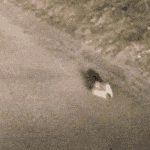|
Tankbuster posted:What about the weird rear end PIE people who hung out in the tarim basin? Lol that for much of human history, the spot between China and India was filled with a mass of people who would in our present day be defined as White. The Tocharians inhabit a middle ground between based and cringe.
|
|
|
|

|
| # ? Jun 10, 2024 09:25 |
|
i say swears online posted:they need to make a better 13th Warrior If he were better he wouldn't be the 13th any more
|
|
|
|
the gently caress is a pie person? lmao
|
|
|
|
i interpreted it as "pedophile in entertainment"
|
|
|
|
Endman posted:the gently caress is a pie person? lmao
|
|
|
|
|
indigi posted:yeah I say the same thing about germ theory And how would you know pre-literate cultures didn't have some type of germ theory? What with not writing it down and all. Actually iirc Richard Rudgley's Lost Civilisations of the Stone Age has some good evidence for pretty drat sophisticated medicine being practiced pretty early (the title is misleadingly sensationalist it's a solid book if a little dated). Penny Spikins' more recent How Compassion Made Us Human also has a bunch of very early (including pre-anatomically modern early) evidence for successful medical care. I don't have my copies here or I'd hunt some examples out. PIE in 70s Britain was the "Paedophile Information Exchange", you can search for more details if you must. E: The 13th Warrior is a fine film if you just assume it's set in Robert E. Howards' world a hundred or so years after Conan. 10,000 BC similarly is set several hundred years before Conan imo. EmptyVessel has issued a correction as of 02:26 on Jan 20, 2023 |
|
|
Riot Bimbo posted:i interpreted it as "pedophile in entertainment" I thought it had something to do with eels.
|
|
|
|
|
Proto-Indo-European, for an actual answer, the precursor language for much of Europe and western Asia.
|
|
|
|
|
Hypothetical precursor language 
|
|
|
|
Deep in the Lancashire swamp lies the last community of ancient pie-people, the Wigans https://www.youtube.com/watch?v=N_oIys5KS4A
|
|
|
|
Endman posted:the gently caress is a pie person? lmao ancestors of the cracker people
|
|
|
|
Tankbuster posted:What about the weird rear end PIE people who hung out in the tarim basin? Lol that for much of human history, the spot between China and India was filled with a mass of people who would in our present day be defined as White. Now it's generally thought that every Indo-European group (really mean language obviously) apart from Greeks, Armenians and Tocharians split off from the Yamnaya culture, while all the others split from the Yamnaya offshoot Corded Ware culture further north. Excluding Anatolian which seems like it's very unclear at the moment. The Tocharians would have split off and gone east early compared to the rest. I heard archeologist Kristian Kristiansen on a podcast saying he thinks the east for the Yamnaya was populated by hostile peoples who would have fiercely resisted migration into their lands. People like the Botai culture who seem to have domesticated the horse independently. That would explain the Tocharians made a bizarre leap across a huge distance without settling down anywhere. Only later were people who would have spoken Indo-Aryan dialects strong enough to push east.
|
|
|
|
Are Indo-Iranians Yamnaya?
|
|
|
|
War and Pieces posted:Are Indo-Iranians Yamnaya? They would have split off from Corded Ware, that's supported by genetics, linguistics and archeology. I meant Indo-Iranian in the last post btw, that's the branch that would lead to Iranian and Indian languages, Indo-Aryan is just the Indian branch but I get them confused all the time.
|
|
|
|
drat this stuff is fascinating I had no idea the iranians reached the iranian plateau so late compared to other migrations. it's crazy it only took 250 years between their arrival and the achaemenids conquering everything around, founded by cyrus, a name still in use today
|
|
|
|
i say swears online posted:they need to make a better 13th Warrior Universal 13th Warrior, starring Jean-Claude Van Damme
|
|
|
Grevling posted:Now it's generally thought that every Indo-European group (really mean language obviously) apart from Greeks, Armenians and Tocharians split off from the Yamnaya culture, while all the others split from the Yamnaya offshoot Corded Ware culture further north. Excluding Anatolian which seems like it's very unclear at the moment. The Tocharians would have split off and gone east early compared to the rest. what podcast
|
|
|
|
|
skooma512 posted:what podcast Razib Khan's podcast, I think if you google Kristian Kristiansen Razib Khan you'll find it.
|
|
|
Animal-Mother posted:Universal 13th Warrior, starring Jean-Claude Van Damme Resurrected 12th century Persian goes on a mission to fight cloned neanderthal cyborgs
|
|
|
|
|
Slavvy posted:Resurrected 12th century Persian goes on a mission to fight cloned neanderthal cyborgs I'd watch the gently caress outta that.
|
|
|
|
Tankbuster posted:tell me more about historical works on pre christian norsemen? I thought that the popular germanic gods mostly mapped 1-1 to most hindu gods which makes sense given that they were both descended from PIE cultures. In Norse mythology there is the God's war between the invading, red headed, Aesir and the blonde Vanir. This does not occur in other Germanic mythology, and as examples the Vanir as a group and the goddess Freyja are not attested outside Scandinavia, where as the god Freyr may be in the form of Ing, although this last point is debated. Also debated is whether these two pantheons both originated as part of older PIE mythology or if they represent a meeting between two different peoples. My understanding is that the gene for red hair originated with the PIEs, so I like to take that as evidence of the later theory but of course it's very circumstantial. Tankbuster posted:What about the weird rear end PIE people who hung out in the tarim basin? Lol that for much of human history, the spot between China and India was filled with a mass of people who would in our present day be defined as White. Genuine question, I've got no idea, would Pamirs be considered white in America? I'd guess no though, just based on Latinos not being considered white. Tulip posted:(Old Kingdom pharoahs, you sure about that buddy?) What did you mean by this?
|
|
|
|
Pharoah as a term referring to the ruler of Egypt was a New Kingdom thing.
|
|
|
|
|
|
|
|
Gaelic and Greek/Roman mythology has competing teams of Gods working with and against each other so It's likely that this was an early feature of their belief system. Romans seem to hold the Titans in higher esteem than the Greeks which is interesting imo.
|
|
|
|
i say swears online posted:they need to make a better 13th Warrior I wasn't prepared for the worst take
|
|
|
|
In a quiet group chat in an obscure part of the internet, a small number of anonymous accounts are swapping references from academic publications and feverishly poring over complex graphs of DNA analysis. These are not your average trolls, but scholars, researchers and students who have come together online to discuss the latest findings in archaeology. Why would established academics not be having these conversations in a conference hall or a lecture theatre? The answer might surprise you. The equation of anonymity on the internet with deviance, mischief and hate has become a central plank in the global war on “misinformation”. But for many of us, anonymity has allowed us to pursue our passion for scholarly research in a way that is simply impossible within the censorious confines of modern academia. And so, in these hidden places, professional geneticists, bioarchaeologists and physical anthropologists have created a network of counter-research. Using home-made software, spreadsheets and private servers, detailed and rigorous work is conducted away from prying eyes and hectoring voices. Many, like myself, are “junior researchers” or PhD drop-outs — people with one foot in the door but who recognise how precarious academic jobs are. Anonymity comes naturally to a younger generation of internet users, reared on forums and different social media platforms. They exploit the benefits and protections of not having every public statement forever attached to your person. I chose to start an anonymous profile during lockdown, a period which saw many professionals adopt a pseudonym as eyes turned to the internet and political positions emerged in relation to Covid, the presidential election and public demonstrations in the West. Archaeology has always been a battleground, since it helps define and legitimise crucial subjects about the past, human nature and the history of particular nations and peoples. Most humanities disciplines veer to the Left today, explicitly and implicitly, but archaeology is the outlier. Instead, it is in the middle of an upheaval — one which will have deeply troubling consequences for many researchers who suddenly see decades of carefully managed theories crumble before their eyes. In the absence of genetic data, it was once possible to argue that changes in the material record (objects and artefacts such as pottery, stone and metal tools, craft objects, clothing and so on) reflected some kind of passive or diffuse spread of technologies and fashions, but this is no longer the case. For instance, for many years students and the public were told that “pots are not people” — that new styles of pottery suddenly appearing in the record does not mean that new people had arrived with them — and the appearance of the so-called “Bell Beaker” pottery in the British Bronze Age showed how imitation and trade allowed new styles of ceramics to spread from the continent. But in 2018, a bombshell paper proved this was fundamentally incorrect. In fact, nearly 90% of the population of Britain was replaced in a short period, corresponding to the movement of the Bell Beaker people into Britain and the subsequent disappearance of the previous Neolithic inhabitants. We know this because careful genetic work, building from paper to paper, shows clearly that the new arrivals were different people, with different maternal and paternal DNA. Papers like this appear almost weekly now. Most recently, the confirmation that the Anglo-Saxons did indeed arrive from northern Europe has caused many academics a great headache, since for years the very idea of an invasion of Germanic peoples has been downplayed and even dismissed. What seems obvious to the general public — that prehistory was a bloody mess of invasions, migrations, battles and conflict — is not always a commonplace view among researchers. Worse, the idea that ancient peoples organised themselves among clear ethnic and tribal lines is also taboo. Obvious statements of common sense, such as the existence of patriarchy in the past, are constantly challenged and the general tone of academia is one of refutation: both of established theories and thinkers and of disagreeable parts of the past itself. Added to this is the ever-present fear that studies and results are being used by the wrong kind of people. In a 2019 journal article, entitled “Genetics, archaeology and the far-Right: An unholy trinity”, Susanne Hakenbeck expresses grave concern that recent genetics work on the early Bronze Age invasions of the Indo-European steppe are needlessly giving oxygen to dangerous ideas — namely that young men from one ethnic group might have migrated from the Pontic-Caspian grasslands and violently subdued their neighbours, passing on their paternal DNA at the expense of the native males. This narrative, fairly well-supported in the genetics literature, is for Hakenbeck deeply unpleasant and wrong: “We see a return to notions of bounded ethnic groups equivalent to archaeological cultures and of a shared Indo-European social organisation based on common linguistic fragments. Both angles are essentialist and carry a deeply problematic ideological baggage. We are being offered an appealingly simple narrative of a past shaped by virile young men going out to conquer a continent, given apparent legitimacy by the scientific method.” That war-like young men might have invaded a nearby settlement is apparently a troublesome statement, something that, again, most lay people simply wouldn’t find difficult to contemplate. Yet others have gone further still. Historian Wolf Liebeschuetz and archaeologist Sebastian Brather, to pick on just two, have both firmly insisted that archaeology must not, and cannot, be used to trace migrations or identify different ethnic groups in prehistory. To quote from Liebeschuetz’s 2015 book, East and West in Late Antiquity: “Archaeology can trace cultural diffusion, but it cannot be used to distinguish between peoples, and should not be used to trace migration. Arguments from language and etymology are irrelevant.” At a stroke, this line of reasoning would essentially abolish several centuries of work unravelling the thread of movements and evolution of the Indo-European peoples and languages, not to mention the post-Roman Germanic Migration Period, Anglo-Saxon invasions, Polynesian and Bantu Expansions and almost all major changes in the human record. But this is precisely the point: by depriving archaeology of the ability to point to when and where different groups emerged and moved, there can be no grist to the nationalist mill. Origin stories such as the foundation of Hungary, England, France, Turkey and Japan can be collapsed into an amorphous and frankly boring set of stories about pottery styles, trade and domestic craft. Any hint of danger or exclusion must be downplayed as much as possible. At the heart of this attempt at erasure lies a fundamental disagreement over archaeology’s purpose. While modern researchers cloak their liberal progressive worldview in the trappings of objective science, the fact is that archaeology is predominantly about telling human stories, and with that, stories of different peoples. The roots of archaeological scholarship lie in the antiquarian past, where intellectually curious men (it was mostly men), worked to piece together foundational narratives about their country and kin. From William Camden’s Britannia (1586) to Flavio Biondo’s Italia illustrata (1474), European scholars were concerned with connecting their nation’s past to the present. But since the Second World War, the trend in Western archaeology has increasingly been to “debunk” or “critically assess” national origin stories: to illegitimate vulgar emotional attachments to roots or claims to exclusive heritage. And yet the public are not stupid; it is obvious that these sentiments are political and inconsistent. Compare these two quotes: “As sensible anthropologists and sensible historians have reminded us: cultures are always in the process of changing and reconstituting themselves, sometimes in almost unrecognisable, qualitatively different ways. There is no culture that has existed ‘since time immemorial’ and no people that is aboriginal in terms of their contemporary culture with a specific piece of real estate.” “Indigenous Australians belong to the oldest continuous culture on earth. Ancient artefacts from Lake Mungo help show us what people ate and how they lived thousands of years ago. Today, the Paakantji, Mutthi Mutthi and Ngyimpaa people of the Lake Mungo region continue their close connections to the land.” The first of these is from Nationalism, politics, and the practice of archaeology in the Caucasus (1995) by Philip L. Kohl and Gocha R. Tsetskhladze, the second from the National Museum of Australia. One takes aim at the people of the Caucasus identifying too strongly with their ancestors, the second happily accepts that modern Aboriginal Australians are the owners of, and descendants from, 40,000-year-old fossils found at Lake Mungo. The official acceptance that these Pleistocene skeletons are the sole preserve of the Aboriginal people and not the common inheritance of humanity has been securely acknowledged. These are two extreme examples, but the value divide between the layman and the academic frequently clashes over this endless push towards progressive politics. Queer Vikings, transgender skeletons, female warriors… not a week seems to go by without some new claim that today’s morality has always been the norm. For the British public, perhaps no single phenomenon better demonstrates this than the “discoveries” of black people in British history and prehistory. The infamous Cheddar Man fiasco, where a Mesolithic hunter-gatherer was identified by geneticists as having black skin, a claim quietly retracted afterwards, was perfect debate fodder and was exploited by anti-Brexit campaigners. Ironically, given that Left-wing activists accuse the Right of distorting facts to fit the theory, these discoveries are not presented in a neutral light. Rather, they are weaponised for supporters of mass immigration to make the rhetorical claim that “Britain has always been a nation of immigrants”. I should say though, there is no consensus within academia to do this, no secret plan or conspiracy. It is simply the almost total homogeneity of political opinions held by scholars and researchers, staff and students, which ensures that interpretations of archaeological findings often go “the right way”. This became clearer than ever following the emergence of the Black Lives Matter movement, which saw archaeology departments and professional bodies across the world fall over themselves to pledge curriculum “decolonisation” and an explicit commitment to politicising the discipline. To quote from the “’The Future of Archaeology Is Antiracist’: Archaeology in the Time of Black Lives Matter”, published in American Antiquity: “Consequently, Black archaeology has been and must remain purposeful in practice. It rejects research and practices defined in sterile, binary terms of objective-subjective positionality. Archaeology at historic Black sites must be conducted with an explicit politics … To the field of archaeology, it serves as a moral guide with the potential to elucidate historical wrongs and explore forms of contemporary redress.” While many people may sympathise with the basic message of redress as a form of social justice, what is being pushed here goes much further and amounts to the destruction of the scientific objectivity required to practice rigorous scholarship. One could argue that archaeology has always been a political battlefield, but the most reliable approach to finding the truth is grounded in empirical science, something precious and valuable and not easily regained once lost. All of which goes some way to answering my earlier question: why are academics and researchers taking to anonymous online spaces to practice their craft? In part because we have an inflation of young people, educated to around the postgraduate level, who no longer see a future in the academy, where jobs are almost non-existent, and acutely aware of the damage a single remark or online comment can do to a career. But also because we have a university research system that has drifted towards a political position that defies a common sense understanding of human nature and history. A young man entering full-time research interested in warfare, conflict, the origins of different peoples, how borders and boundaries have changed through time, grand narratives of conquest or expansion, would find himself stymied at every turn and regarded with great suspicion. If he didn’t embrace the critical studies fields of postcolonial thought, feminism, gender and queer politics or antiracism, he might find himself shut out from a career altogether. Much easier instead to go online and find the ten other people on Earth who share his interests, who are concerned with what the results mean, rather than their wider current political and social ramifications. So this is where we are. If you want to learn about the Ymyyakhtakh culture, Corded-Ware linguistics, Denisovan genetics, Mississippian cultural collapse, post-glacial Mesolithic development or migrations to Madagascar, the anonymous internet is the place to go. In the absence of status and career concerns, researchers can turn exercise their obsession by thoroughly reviewing new papers in a way the current peer-review system does not allow. Without the self-imposed firewalls of specialisation erected by academic departments, anonymous accounts and blogs are free to roam across different disciplines, connecting the dots between mortuary archaeology, languages and religions in a way modern scholars simply cannot. Are there cranks and weirdos? Yes. But I know of several hundred former or current academics who are committed to this new form of research. I don’t know what my future holds, but I find it inspirational living in two worlds, where they bleed into one another. I get messages almost daily from others in a similar position, who sense they are not wanted in academia, but wish to continue their research. In this creative, dynamic interface between the visible and invisible worlds of historical investigation, something new is rising.
|
|
|
|
i dropped out of my phd but i just teach high school instead of pretending im a hardcore underground rebel
|
|
|
|
that is from the site unherd which is about not being in a herd mentality which has some very choice articles that are lol
|
|
|
|
Weka posted:In Norse mythology there is the God's war between the invading, red headed, Aesir and the blonde Vanir. This does not occur in other Germanic mythology, and as examples the Vanir as a group and the goddess Freyja are not attested outside Scandinavia, where as the god Freyr may be in the form of Ing, although this last point is debated.
|
|
|
|
Weka posted:snip Recent work at Edinburgh has shown that there is no single gene for red hair but at least eight. quote:According to the largest ever study on hair genetics, at least 8 genes are involved in determining whether or not someone has red hair. From here: https://www.ed.ac.uk/coronagenes/previous-research/researchers-discover-genetic-link-to-red-hair Original paper (which is incredibly opaque to my non-geneticist self) is here: https://www.nature.com/articles/s41467-018-07691-z Looking at the comparisons between maps of red hair frequency and the one for Y-haplogroup R1b here: https://www.eupedia.com/genetics/origins_of_red_hair.shtml#map It looks equally plausible that red hair starts in the west and moves east. All the archaeogeneticists I've met agree on one thing, because the discipline is so young, and advances are happening so fast and often, we must be ultra cautious about making any definitive claims about the results. Some Guy TT posted:Wall of ...something  Begging your pardon sir, but your agenda is showing. Begging your pardon sir, but your agenda is showing.lmao at "the almost total homogeneity of political opinions held by scholars and researchers, staff and students, which ensures that interpretations of archaeological findings often go “the right way”" The old truism 'get three archaeologists to look at the same evidence and you'll get at least five different interpretations' is closer to my experience. Archaeologists troll the gently caress out of each others ideas all the time. That dude needs to read more and better, and work on their reading comprehension. Third World Reagan posted:that is from the site unherd More like "not being in a herd mentality that disagrees with the one True herd mentality, which I'm completely coincidentally part of".
|
|
|
|
Weka posted:Genuine question, I've got no idea, would Pamirs be considered white in America? I'd guess no though, just based on Latinos not being considered white. Who is and is not white in America is pretty loosely defined. Basically people who have light skin but aren't (usually) protestant are the classic edge case, from Poland to Gujarat. So it really depends on who you're asking and what exactly you're asking about.
|
|
|
|
the best way to think of it is this: If a person is pale enough to not get asked questions if they speak with an american accent, they are white.
|
|
|
|
Passing is a fascinating subject where you can get lost in someone's mind palace.
|
|
|
|
Weka posted:
"Pharaoh" is not the name of the office of the king (which would be nj sw), it's a metonym that follows from the physical household that kings used, sort of like how we use "White House" to mean the President of the US. "Pharoah" starts coming in to use in the 18th dynasty - so about 700 years after the end of the Old Kingdom, and also as you might suspect by not only 700 years passing but also an Intermediate Period, the Middle Kingdom, and another Intermediate Period between the Old and New kingdoms, a VERY different government structure. In modern political terms, referring to Khufu as "Pharaoh" is somewhat akin to referring to Longshanks as "Downing Street."
|
|
|
|
Tulip posted:"Pharoah" starts coming in to use in the 18th dynasty I often see people writing "pharoah" in English and I wonder why. Is it just a common typo? Is there some other common word that ends in -oah and people make the analogy? Is it some legitimate alternate reading of the Egyptian name? From the pronunciation it should definitely be pharaoh, and I never see that variant in any other language.
|
|
|
|
americans generally pronounce it "pharoh" which leaves the position of the a ambiguous because it is silent either way
|
|
|
|
|
pidan posted:I often see people writing "pharoah" in English and I wonder why. Is it just a common typo? Is there some other common word that ends in -oah and people make the analogy? Is it some legitimate alternate reading of the Egyptian name? From the pronunciation it should definitely be pharaoh, and I never see that variant in any other language. Americans pronounce it the exact same as "Faroe" or "Farrow" (and now I feel like I'm going crazy cuz I have no idea what "aoh" should sound like off the top of my head). Obviously the ancient Egyptian for it is pr ꜥꜣ, which is...lets just say lacking some vowels. The Coptic and Biblical Hebrew versions of it have a long o (Pǝrro and Parʿō, according to wikipedia).
|
|
|
|
if you're in the south and talking about moses it's FAY-row
|
|
|
|
Thanks, that's interesting! Now I wonder why it's written as Pharaoh in the first place - from what I remember, for names that come directly from ancient Egyptian inscriptions, people just fill in vowels as they please, that's why Nofretete is sometimes also called Nefertiti.
|
|
|
|

|
| # ? Jun 10, 2024 09:25 |
|
pidan posted:Thanks, that's interesting! Now I wonder why it's written as Pharaoh in the first place - from what I remember, for names that come directly from ancient Egyptian inscriptions, people just fill in vowels as they please, that's why Nofretete is sometimes also called Nefertiti. You're German? I'm guessing from your post history
|
|
|













































